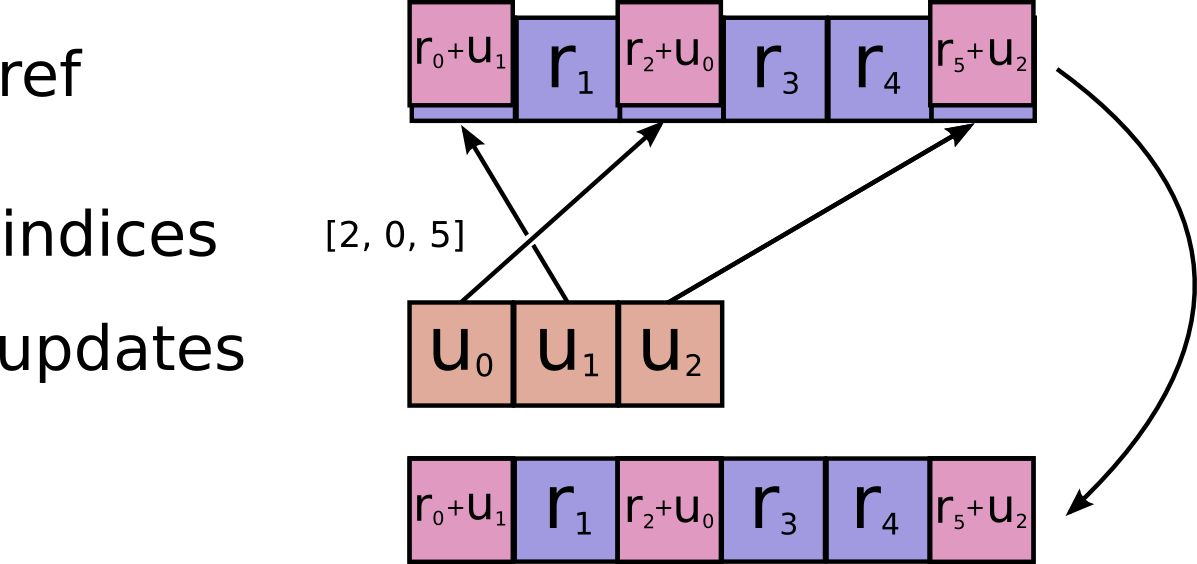tf.scatter_max(
ref,
indices,
updates,
use_locking=False,
name=None
)
Defined in generated file: tensorflow/python/ops/gen_state_ops.py.
Reduces sparse updates into a variable reference using the max operation.
This operation computes
# Scalar indices
ref[indices, ...] = max(ref[indices, ...], updates[...])
# Vector indices (for each i)
ref[indices[i], ...] = max(ref[indices[i], ...], updates[i, ...])
# High rank indices (for each i, ..., j)
ref[indices[i, ..., j], ...] = max(ref[indices[i, ..., j], ...], updates[i, ..., j, ...])
This operation outputs ref after the update is done.
This makes it easier to chain operations that need to use the reset value.
Duplicate entries are handled correctly: if multiple indices reference
the same location, their contributions combine.
Requires updates.shape = indices.shape + ref.shape[1:] or updates.shape = [].

Args:
ref: A mutableTensor. Must be one of the following types:half,bfloat16,float32,float64,int32,int64. Should be from aVariablenode.indices: ATensor. Must be one of the following types:int32,int64. A tensor of indices into the first dimension ofref.updates: ATensor. Must have the same type asref. A tensor of updated values to reduce intoref.use_locking: An optionalbool. Defaults toFalse. If True, the update will be protected by a lock; otherwise the behavior is undefined, but may exhibit less contention.name: A name for the operation (optional).
Returns:
A mutable Tensor. Has the same type as ref.